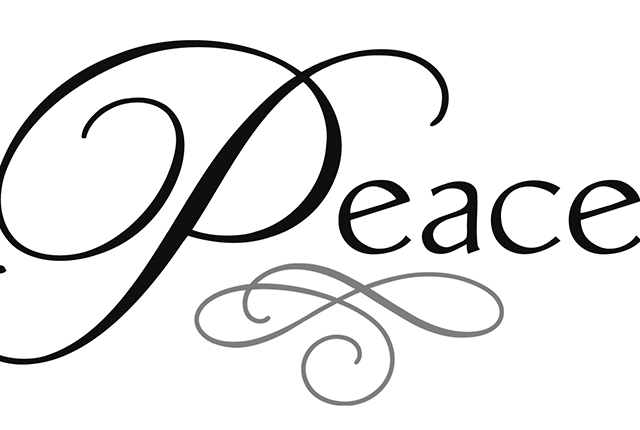Peace a viable currency

Victoria Ruzvidzo : Business Focus
Peace and stability is a currency that a country can use to develop if harnessed, packaged and marketed well.Investors, both local and international are always ready to pour their money into an environment where peace prevails. This is because peace comes with security, order, direction, sustainability, positive energy and other facets that create a fertile environment for business and livelihood. A peaceful climate allows business to flourish while settled minds and systems promote innovation and creativity which is often constricted in an environment of instability and turmoil.
Whereas wars are destructive peace is constructive and a country can leverage on that in its development process.
A few days ago a television report on the cessation of a 52-year-old war in Colombia caught my attention. It said the Colombian government had reached an agreement with the main left-wing rebel group — The Revolutionary Armed Forces of Colombia (Farc) to end the protracted war.
I was amazed that the South American country had been at war for 52 years. I imagined that my mother was not yet a teenager when the war began and there was not a clue then that I would one day be brought forth into this world, just to illustrate that it’s a long span indeed.
I can, therefore, imagine the damage to the country’s economy and social fabric that such a long period of unrest has caused.
In fact this war goes down in history as one of the longest-running insurgences in the world.
A synopsis of the Colombian economy showed that agricultural production was severely affected as farmers migrated to urban areas for better security hence most firms that depended on the sector for their raw materials had to close shop.
Unemployment levels have continued to rise over the years while the prices of basic commodities went up, impacting adversely on the standard of living in Colombia.
Already the country is talking about the billions of dollars that will be required to resuscitate the economy in terms of infrastructure, industry and other damages. The physical and psychological effects of the war are quite vast.
This really got me thinking that indeed the peace that a country enjoys should never be taken for granted. It is a currency that can transform situations.
Trade and investment flourish in a peaceful environment while development processes are usually not constricted or retarded when peace prevails.
Zimbabwe is generally regarded as a peaceful country hence tourists and visitors do not think twice in instances where peace and stability become a compelling factor.
Barring current socio-economic and political skirmishes over the last few weeks, Zimbabwe remains a peaceful country and the economy should continue to ride on this currency to foster effective transformation and growth.
But as Zimbabweans we are duty-bound to ensure we maintain and safeguard the peace that has given us the edge as a tourist and investment destination.
The Government, private sector, civil society and all stakeholders need to work towards consolidating peace while resolving issues timeously and move effectively to ensure there is harmony and a prosperity-thy-neighbour concept that we are generally known for.
This is a key ingredient for the transformation of our economy.
Of course it would be too simplistic to think that mere peace is what oils the economy.
Several factors get into the mix but peace is a key ingredient.
Of course the ease of doing business, the macro-economic environment do determine a great deal the pace and nature of progress that the economy should attain.
On Tuesday I had dinner with enthusiastic Zimbabweans based in the United Kingdom who expressed keen interest to invest in this economy in terms of business ventures and philanthropy.
These are Zimbabweans who are living in the diaspora for the past 25 years and have the links and resources which contribute significantly into the economy.
However, they lamented the bureaucracy and increasing difficulties to make headway in this economy.
They said on several occasions their efforts had been frustrated but because this is home to them, they would persist until avenues open.
However, they spoke of a millionaire in the UK who wanted to invest in some project here but was asked to pay $1 million in some quarters so that his project could be processed and links established.
You guessed right! He was frustrated and look his funds elsewhere. Corruption was gotten in the way because investors are made to oil hands for things to happen and the sad thing is that this normally happens outside the Zimbabwe Investment Authority’s purview hence difficult to track.
Zimbabwe is ranked 155 out of 186 in terms of global rankings of Ease of Doing Business, down from 153 in 2015.
The survey shows that in 2016 it was more difficult to start a business than it was in the past years while improvement was noted in terms of protection of minority investors and access to credit.
These statistics can obviously improve once efforts to improve the situation are sustained. Indeed we applaud initiatives by the Zimbabwe Investment Authority and other arms to make it easier and smoother for investors to set up shop here.
Initiatives to directly engage and facilitate swift processes for such big investors as Aliko Dangote are in order and reflect a realisation by the powers that be on the need to improve the way things are done.
The short-term macro-economic outlook for 2016 indicates that the economy remains challenged and will need active efforts to revitalise it.
Last year’s GDP growth of 1,5 did not compare well with an average 3,8 percent achieved by Sub-Saharan Africa.
Contraction in agriculture and mining is reflected in the slowdown in economic growth but increased gold output and stability in the banking sector are expected to work in Zimbabwe’s favour.
Furthermore, the tourism sector looks set to increase both arrivals and earnings and help support economic growth.
“We maintain that there is a critical need for the country to compete for and attract the limited FDI available for the region, however, an increasingly polarised political environment accompanied by policy inertia remains a significant impediment.
“Encouragingly we have observed a continued thawing in international relations, with progressive elements within government actively engaging with creditors and foreign investment community,” noted a research firm recently.
In God I trust!
Email: [email protected]; Whatsapp: 263 772129972.










Comments